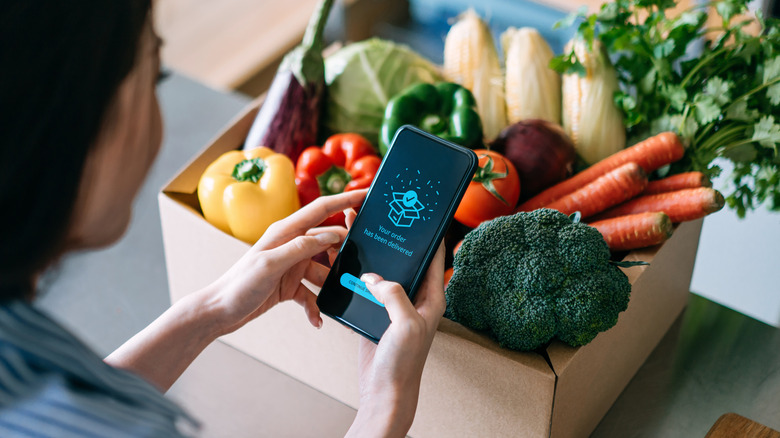Survey Shows Online Grocery Shopping Isn't What Younger People Want
The sentiment of "time is money" is a main motivator for online grocery shopping. That convenience has value, but sometimes, pushing the order button does not come with sufficient enough reward. According to The Feedback Group's recent survey, online food shopping has left some people feeling a little less enthused when their order arrives at the door.
During the pandemic, online grocery shopping became more prevalent. Over recent years, more companies have catered to consumers' cravings for convenience. While the industry serves many demographics, younger shoppers apparently have higher expectations. As concluded by Doug Madenberg, chief listening officer of The Feedback Group, younger consumers' tendency to frequently be online has made them more critical of e-commerce services. Compared to Boomers and Gen X, both Millennials and Gen Z evidently have a lower satisfaction rate with online shopping. In order to satisfy the younger generations, companies will likely need to consider innovation, customer loyalty programs, and quality-assurance procedures to alleviate their lack of contentment.
Additionally, companies might want to consider more personalized shopping options. From re-order lists to suggested products, these types of extras could cultivate a stronger relationship between consumer and company. "The customer is king" may sound clichéd, but retailers will need to re-stock their current approach on bringing youthful consumers what they crave.
Online grocery shopping fails with fresh produce
One food category in particular has the lowest overall satisfaction rate with consumers: fresh produce. Per The Feedback Group, customers find that the product delivered to their door often falls short on quality standards. Although the reason why is not specified in the report, there could be a disconnect between the store's wide selection and the items actually chosen by the delivery service; some people might be very specific about their preferred tomato type or avocado ripeness, and workers may not always pick products that meet those stringent requirements. How online shopping companies can help to rectify this situation remains to be seen.
Overall, it appears that online grocery shopping needs to evolve based on consumer demand. From customer loyalty programs to bargain deals, convenience alone will not outweigh overall satisfaction when there are so many options available. As digital platforms expand, capturing the younger customer's dollar is vital to e-commerce's longevity.
It's not just about managing expectations; it is about exceeding them. Just like a custom coffee order, people want precision when they are spending top-dollar. Roaming aisles looking for a hidden gem may no longer hold appeal to some, but many shoppers still don't want just any old food arriving at their doorstep.

